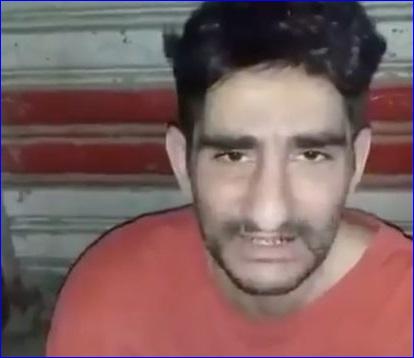


The case, nevertheless, should trouble all who are concerned, not only with the persecution of Christians and other religious minorities, but with fair and just immigration policies, both in the US and the UK.
Aldaoud was, as his family and friends have pointed out, both bipolar and severely diabetic. He died, according to reports, homeless. Is this how an immigration system is meant to work in a Christian country?
We should also ask why he was sent to Iraq at all. Aldaoud was, according to the bare facts, an Iraqi national: although most of his family had become US citizens, he had remained a legal permanent resident. Yet this "Iraqi citizen" had been born in Greece, never lived in Iraq and did not speak Arabic.
He was originally deported not to, say, the city of Erbil, where the sizable Christian community might have been able to welcome a fellow-believer, but instead to Najaf, the centre of Shia Islam in Iraq.
Representative Andy Levin, a Democrat legislator from Michigan which has the largest Chaldean community in the world outside of Iraq, described Aldaoud's deportation as "essentially a death sentence".
In early 2017, Immigration and Customs Enforcement (ICE) began arresting Iraqis, including many Chaldean Catholics, who were legal US residents, not illegal immigrants. Most, like Aldaoud, had been convicted of felonies, including robbery and drug possession. ICE carried out a series of raids, including one at a Chaldean Catholic church after Mass.
According to Mindy Blelz, senior editor of the Christian magazine World and chronicler of the genocide against religious minorities in Iraq, the crackdown came after the Trump administration struck a deal with the Iraqi government: Trump would lift the travel ban on Iraq, if Iraq would accept deportees. When the Iraqi government agreed, the arrests began.
During the presidential campaign, and later in the Oval Office, Trump has often declared his concern for persecuted Christians around the world. In a 2017 interview he said of persecuted Christians, especially in Syria and Iraq, that "We are going to help them." In the same year, Vice-President Pence stated that, not only would the US help, but that persecuted Christians would be a "priority".
The administration has, to its credit, emphasised religious freedom in its rhetoric. And perhaps most significantly, Trump has signed into law the Iraq and Syria Genocide Relief and Accountability Act, which makes sure that aid goes directly to persecuted communities. But given Iraq's recent history of persecution, it seems hard to justify sending Catholics to the country.
A bipartisan bill has been proposed, by both Rep Levin, a Democrat, and his Republican colleague from Michigan Rep John Moolenaar, to grant a two-year stay on deportations to Iraq. This is, in some sense, a continuation of the Temporary Protected Status (TPS) given to citizens from certain countries suffering from armed conflict or natural disasters. The Trump administration has been swiftly, and perhaps justifiably, removing countries where conditions have changed from the TPS programme. But Syria is due to be removed and Iraq is not included.
The Catechism states that sovereign nations have the right, for the "common good", to subject immigration to "various juridical conditions". Despite the protestations of some clerics, the Church does not advocate for open borders. But the Aldaoud case and others like it in the US -- and the denial of visas in the UK to Christians and Yazidis -- indicate serious failings.
Apart from anything else, there is a level of religious illiteracy in the organs of government which urgently needs to be addressed.
Jimmy Aldaoud's remains will now be flown back to Michigan, where he will receive a Catholic funeral. But his story will stand as a reminder that justice must be tempered with mercy.

or register to post a comment.